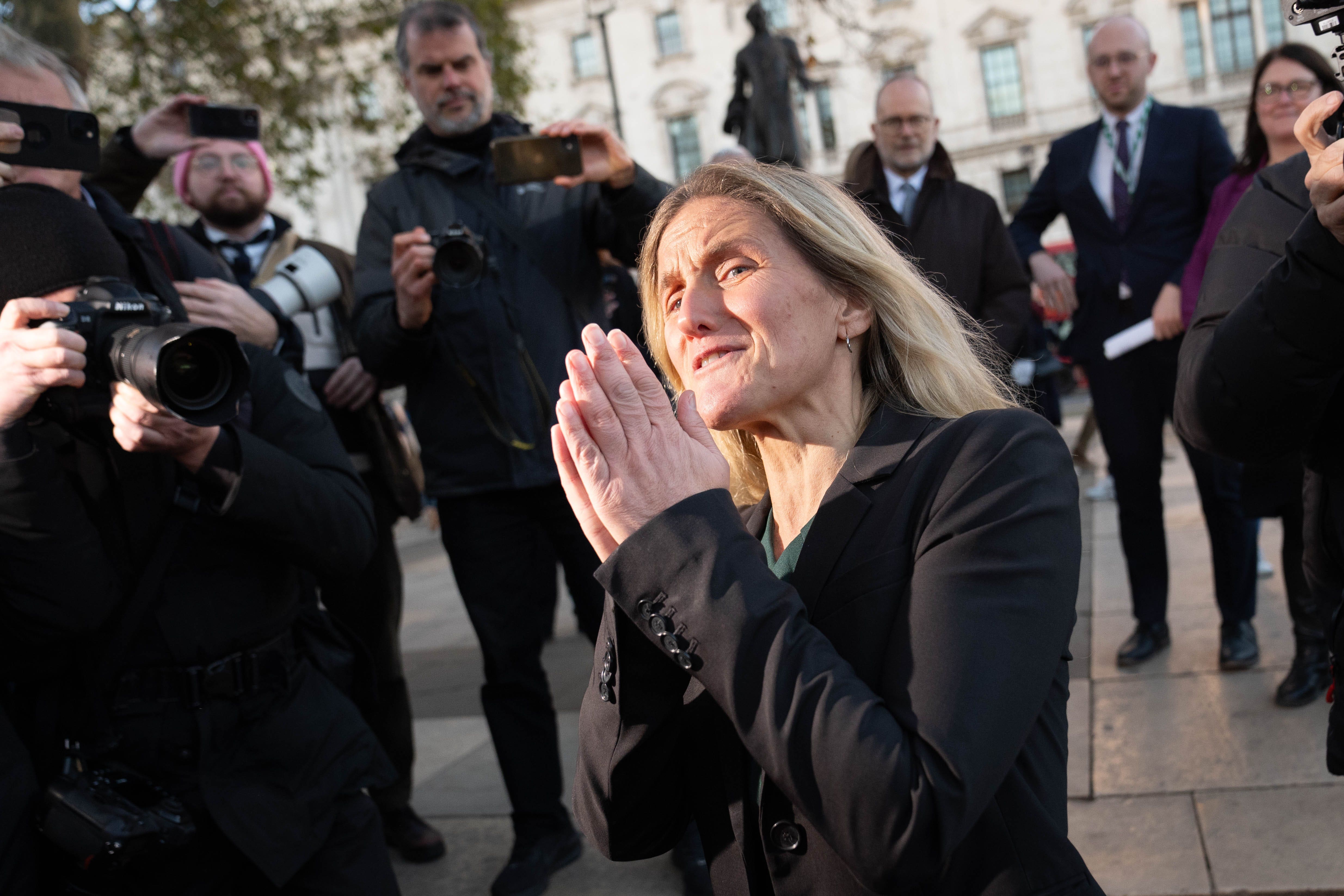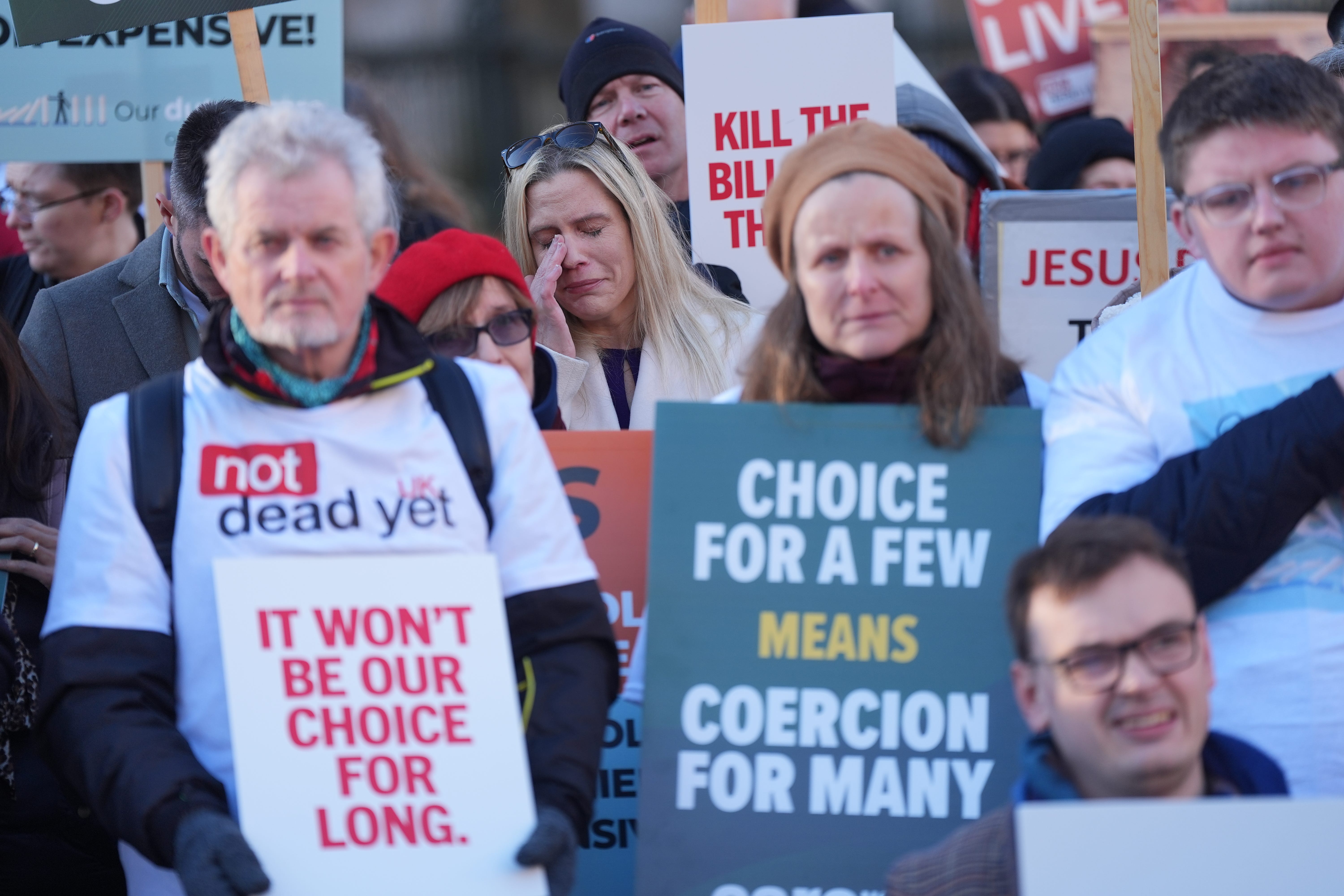In November, after five hours of intense and emotional debate, MPs voted in favour of a bill that would allow terminally ill adults who have six months or less to live to seek help to end their own life.
The historic vote was heralded by assisted dying campaigners as “amazing news”, which would pave the way for people to have a choice over how they died. But campaigners against the bill vowed that their efforts to stop it becoming law were “not over”.
While the bill was passed in the House of Commons, with 330 MPs in favour and 275 against, some only gave qualified support with the proviso that changes would be made before its third reading.
Labour MP Kim Leadbeater, who proposed the bill, said there was “absolutely still a lot of work to do” on the bill and that “slight changes” are part of the process.
The bill has now passed through the committee stage, where more than 150 amendments were made after line-by-line scrutiny between January and March. An amended version of the bill was given back to the House on 28 March and it will be this document that MPs will consider further changes to on Friday before a final vote.

The most significant amendment at the committee stage was the removal of High Court approval of assisted dying, replaced with multidisciplinary “Assisted Dying Review Panels”, consisting of a senior legal figure, a consultant psychiatrist, and a social worker.
Other amendments included requiring the doctors assessing assisted dying requests to have detailed training on domestic abuse, including coercive control and financial abuse, and preventing them from discussing assisted dying in isolation from with other options for example palliative care.
Amendments also make independent advocates available for people who “may experience substantial difficulty in understanding the processes or information relevant” to the assisted dying process.
So what are the issues parliamentarians have looked at before the bill returns to the Commons again?
How involved are family members in the process?
There was some concern among MPs who opposed the bill in November that terminally ill patients could apply and be granted the right to end their life without their loved ones hearing about it.
Under the bill, the doctor assessing the terminally ill patient for an assisted death “should, where they consider it appropriate, advise the person to consider telling their next of kin or other people they are close to”.
There is no requirement for involvement of family members, however, the panel may “hear from and question any other person” that they wish in order to determine that the applicant has not been coerced.
But some MPs, led by Labour MP Jess Asato, are proposing changes to this clause to instead require doctors to ask about speaking with their next of kin and where someone has not discussed the request, discuss their reasons for not doing so.
Under the bill, there is no right to appeal a decision made in favour of granting an assisted death.
Ms Leadbeater argued that by creating a formal process that enables assisted death, closed-door practices are now “brought into the open”.

Will the court proceedings happen in public or private?
In the initial proposals, a High Court judge would approve each assisted dying request after someone gained approval from two doctors.
However, the bill committee amended this under Ms Leadbeater’s suggestion that a multidisciplinary “Assisted Dying Review Panel”, consisting of a senior legal figure, a consultant psychiatrist, and a social worker, should approve each instead.
The Royal College of Psychiatrists has raised concerns about this amendment, stating it is not clear what a psychiatrist’s role on a multidisciplinary panel would be and that there are not enough consultant psychiatrists to meet the bill’s range of demands.

Can someone else apply for an assisted death on behalf of the patient?
The current bill allows the applicant for an assisted death to use a proxy. This is to allow for cases where the patient is unable to sign their own name and wants to authorise someone else to apply for an assisted death on their behalf.
The proxy can be either a “person who has known the person making the declaration personally for at least two years” or “a person who is of good standing in the community”.
This person cannot be a family member, someone who is a beneficiary of their will or may otherwise financially benefit, or any health professional who has provided care in relation to the person’s terminal illness.
How quickly will assisted dying come into law?
Under the committee stage, the commencement period has doubled from two to four years in England, meaning that the majority of the bill’s provisions must be implemented within four years of it becoming law.
Previously, Ms Leadbeater said that her bill has a commencement period of up to two years, promising: “This is not going to happen overnight.”
This timeframe can be altered and debated by MPs at the committee stage, “as it is more important to get this right than to do it quickly”, she said.
Can doctors and judges opt out?
There is a specific clause in the bill that allows doctors or other health professionals to opt out of assisting someone to die.
If the registered health professional is unwilling or unable to conduct the preliminary discussion of assisted dying, they are not required to refer the person to another medical practitioner but must ensure that the person is directed to where they can obtain information and have the preliminary discussion.
However, there is no similar clause in place for judges.

Can doctors suggest assisted death to their patients?
This has been a significant area of debate among MPs. In November, Sir David Davis, who voted in favour of the bill on Friday, told MPs during the debate that his support was conditional on certain areas being “put right” in the committee stage.
He raised a particular concern about a clause that suggests that doctors would be able to suggest assisted dying as an option for a terminally ill person. Under the bill, no medical professionals are stopped from using their judgement to “decide if, and when, it is appropriate to discuss the matter with a person”.
The bill also allows the applicant to seek the opinion of another doctor if they are refused an assisted death.
If a second doctor refuses to affirm the patient’s right to an assisted death, then the first doctor, who granted approval, can refer the patient to another medical practitioner.
However, the bill prevents doctors from discussing assisted dying in isolation from other options, such as palliative care, with a patient.
MPs to debate controversial assisted dying bill after major changes
Assisted dying bill: What is the legislation and what might it mean for patients?
King Charles’ wealth jumps by 2000% in 2025 – making him as rich as Sunak and wife
What changes are being made to assisted dying legislation and will it become law?
Why US residents want to move to UK and the areas they want to buy







